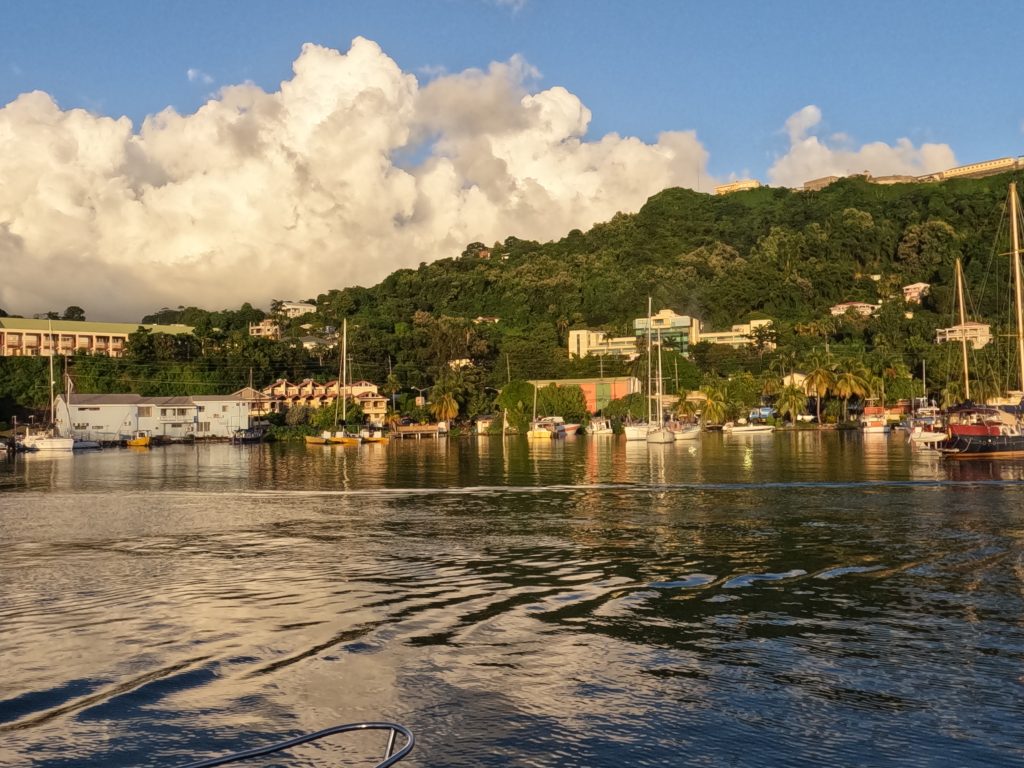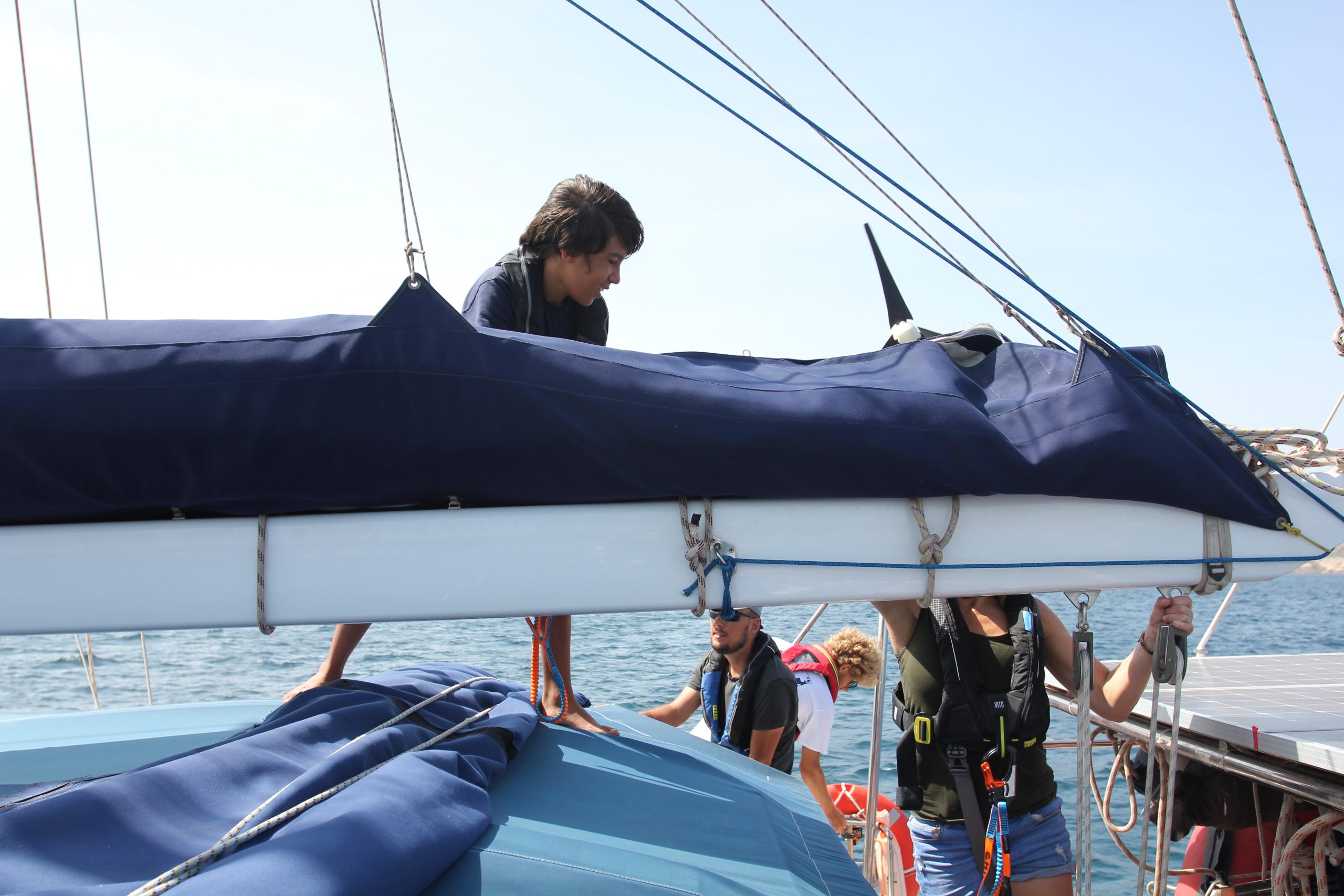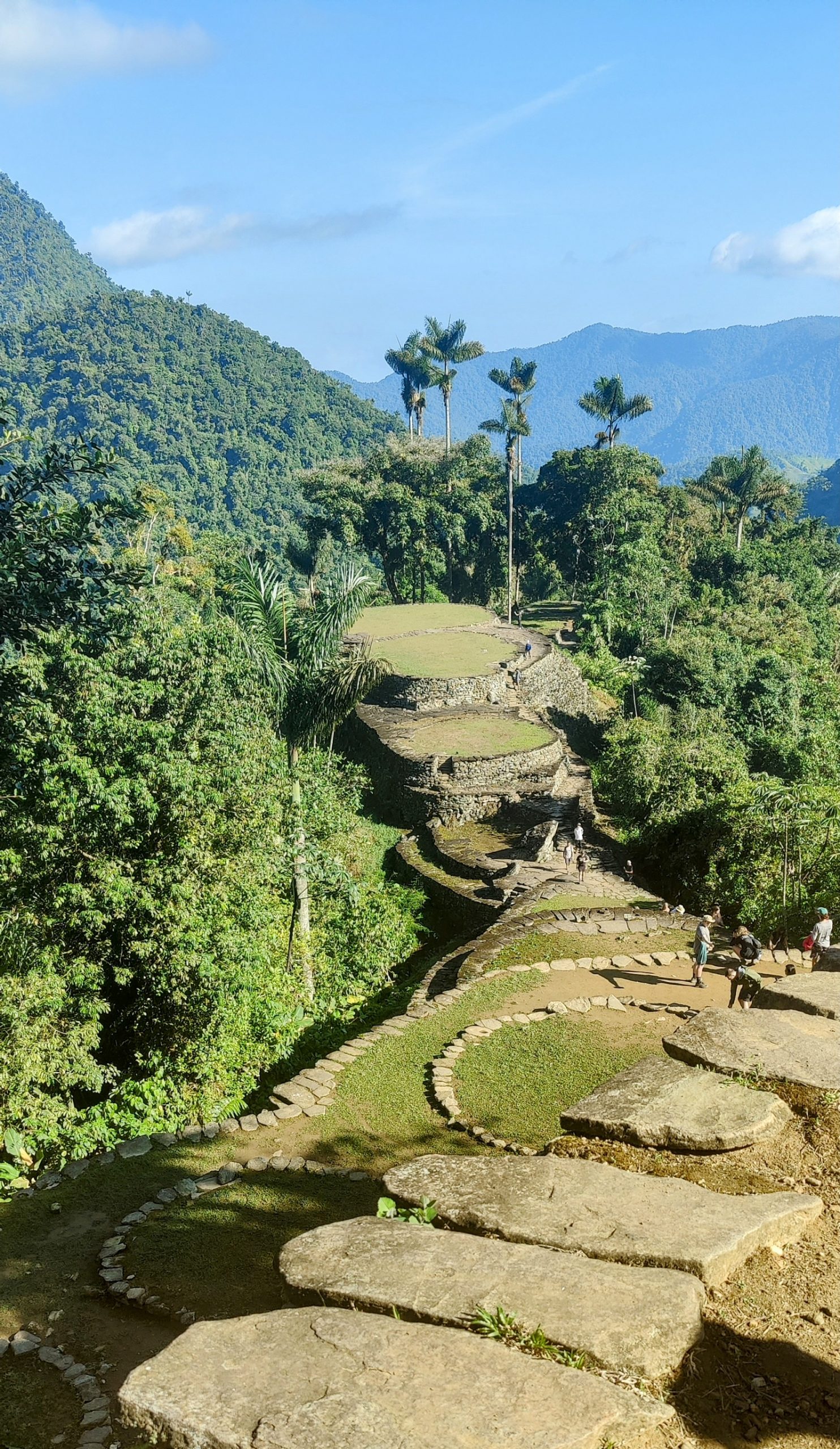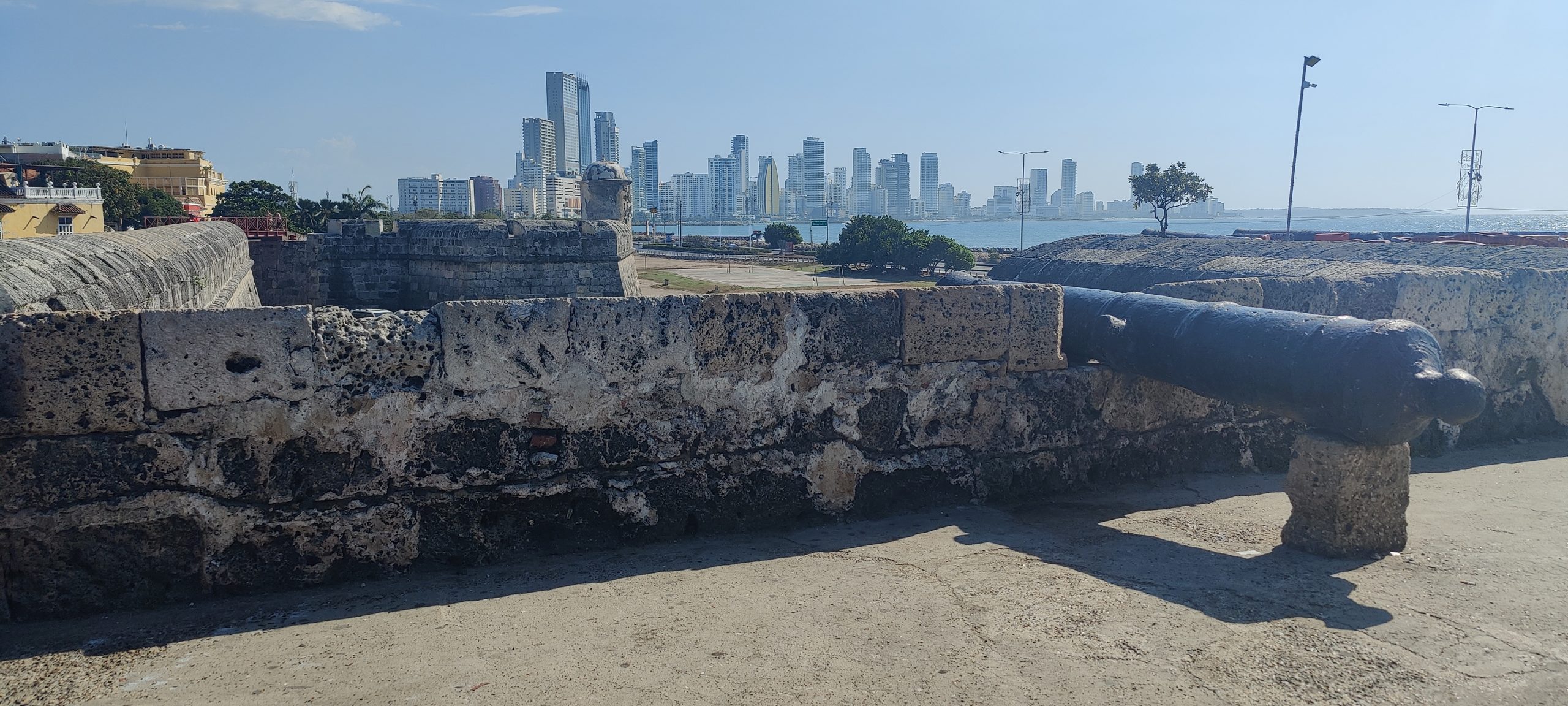Friday November 18th, the Arc+ rally started for the long-awaited and somewhat dreaded transatlantic crossing, which we have spent a long time preparing. With two more crew members we were 6 adults to take the watches, and according to the weather reports, the crossing seemed manageable.
With a freezer, fridge, an unused restroom converted into a storage room and 3 vegetable nets filled with food, we were ready for 3 weeks at sea.
The rally start was quite fun. For a long time we could follow a lot of other boats.
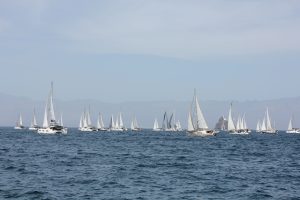
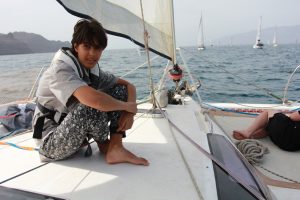
Out of the harbour there wasn’t much wind, but a bit further out we got some unstable winds and had to change sailing direction several times along the way. The first 3 days of the crossing we had a bit too much wind, and chose to sail with headsail only to avoid unintentional booming. This also meant that we had very little speed and we could follow on the Ais that we were falling behind the other Arc boats. After about 3 days, the wind died down a bit. We put up the parasailor and headed straight for Grenada.
The wind and the swells were higher than our previous sailings. In a catamaran, you get breaking waves between the two hulls. It makes a very loud bang in the boat every time. When the swell was high, it was really loud.
Even though not much happens on a boat when you’re sailing long-distance, we had a good time with good food, music and games.
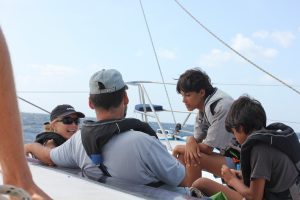

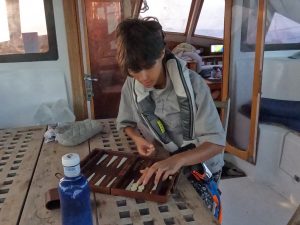
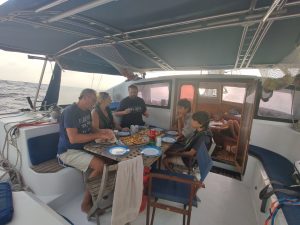
The kids got used to the sea and had no need for pills or patches. Martin and I could manage our seasickness with plasters on in the cockpit and didn’t spent time inside apart from sleeping. Our crew Christina and Peter helped with all the practical stuff inside the boat like cooking and doing the dishes. Martin occasionally had to go down to the engine room and make water with the watermaker and keep an eye on the electricity. Otherwise he was mostly in the cockpit.
Along the way we had visits by a number of flying fish and a white egret, who was in the cockpit for some time and had a small flying fish to eat before moving on again.
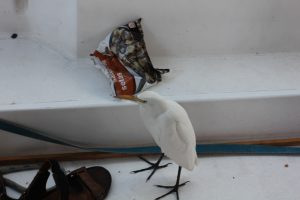
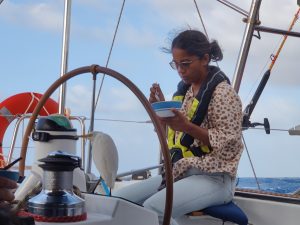
With the autopilot on most of the time, the watches were not all so exciting. Some of us combined it with other activities.
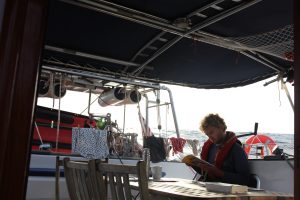
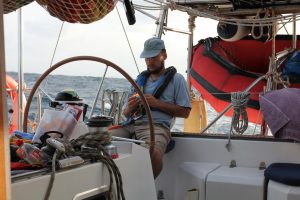
After arriving in Grenada we could see that other boats have also been visited by white egrets. I wonder if the Arc fleet has been disrupting their migratory route with all the boats sailing at once.
There was not much fishing on this trip. The one time we hooked a fish, it ran off with our hook and all the line. Someone forgot to tie a knot in the end. The other time, a fish wriggled free while Ian was reeling it in.
Along the way we got reports from other boats through the Arc. Many of the other boats lost their autopilots along the way and had to steer manually. We were lucky that ours was brand new from Las Palmas and worked all the way.
Several other boats had problems with the rudder and steering. One boat had two casualties when they suddenly lost control of the boat and the mainsail got stuck.The sea was too high to transfer of the casualties, but they were escorted by a larger boat until they got into calmer water and ended up sailing to Antigua.
Even though all the boats left at the same time, we were dispersed after 2-3 days. Some sailed north for more wind and others, like us sailed south for less wind. This meant that the boats had different weather conditions along the way. We were quite lucky with the weather and only had a few showers the last 24 hours. This in turn produced some beautiful rainbows.
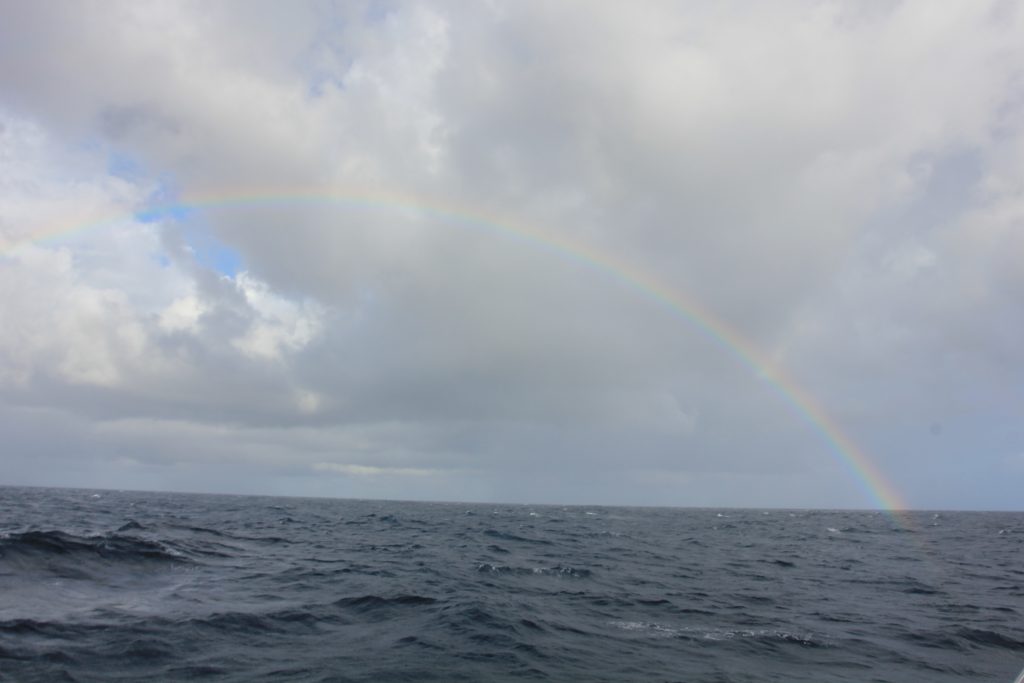
Other boats that came in just a few days after us had experienced very heavy rains that had destroyed equipment on their boats.
We arrived in Port Louis Marina in Grenada on 30-11-2022 after 12 days and 5 hours at sea as the 16th boat in the Arc+ Rally. It was great to get ashore after 12 days at sea. Here is the view of Grenada just before we moored at port.
